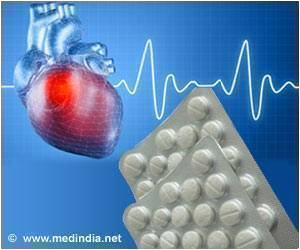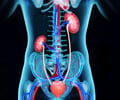An individual's body mass index (BMI) not related to venous thromboembolism (VTE) rates, but renal function did have an impact, says study.

‘Current unfractionated and low-molecular-weight heparin dosing in the presence of acute kidney injury may not be sufficient to prevent VTE.’





They concluded that a person's body mass index (BMI) was not related to VTE rates, but renal function did have an impact. Creatinine clearance was not associated with VTE rates when unfractionated heparins or low-molecular weight heparins were given, but patients with acute kidney injury had higher VTE rates, even in the presence of prophylaxis. "Current unfractionated and low-molecular-weight heparin dosing in the presence of acute kidney injury may not be sufficient to prevent VTE," warns lead researcher Dr. Aaron Holley, "future studies need to address the optimal dosing of heparins in these cases."
Further results from this study will be shared at the CHEST Annual Meeting 2017 in Toronto on Tuesday at the Metro Toronto Convention Centre.
Source-Eurekalert















